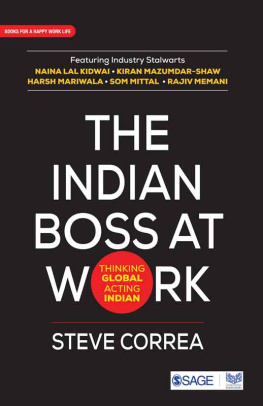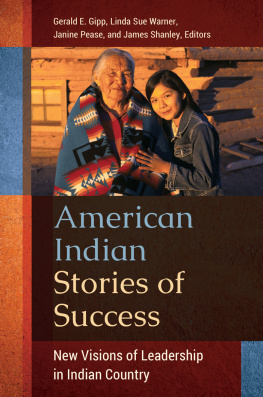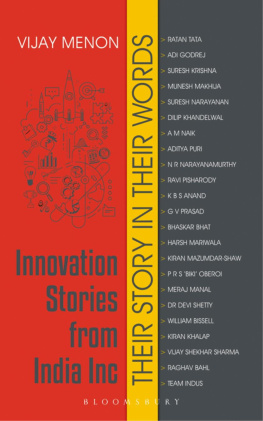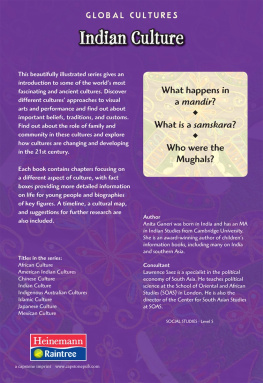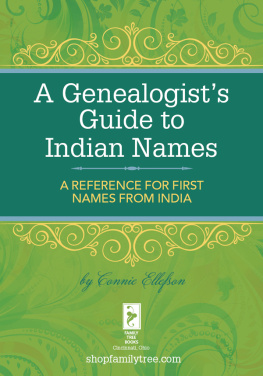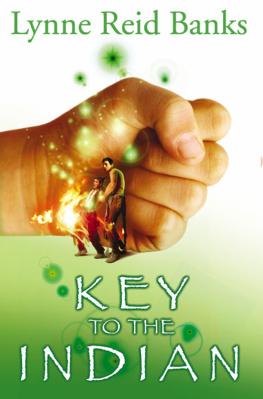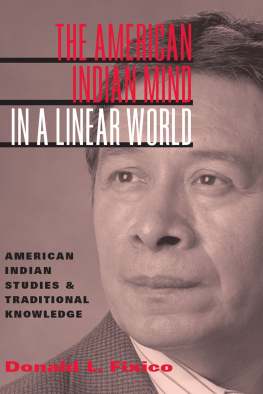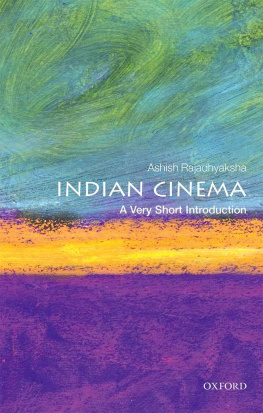
SAGE was founded in 1965 by Sara Miller McCune to support the dissemination of usable knowledge by publishing innovative and high-quality research and teaching content. Today, we publish over 900 journals, including those of more than 400 learned societies, more than 800 new books per year, and a growing range of library products including archives, data, case studies, reports, and video. SAGE remains majority-owned by our founder, and after Saras lifetime will become owned by a charitable trust that secures our continued independence.
Los Angeles | London | New Delhi | Singapore | Washington DC | Melbourne
ADVANCE PRAISE
The Indian Boss is a must-read for global leaders of all typesin all industries, private and public sector and geographies! It provides an important reminder about contextual leadershipunderstanding in this case, the uniqueness of India as nation, its leaders and individuals as part of a global leadership playbook. Its also a reminder of the opposite: the power of Indian leadership on a global stage.
Honourable Terry D. Kramer, Former US Ambassador; Former Vodafone Group Plc Executive and Faculty Director, UCLA Anderson School of Management
I highly recommend this book to build, enrich and refine ones understanding of Indian leadership and recognize that which is uniquely Indian that will separate the winners from the rest in an increasingly VUCA world.
Amrit Thomas, Former CMO Diageo and Former Chairman, Royal Challengers Bangalore
An ancient culture awakens and is beginning to find its voice in todays world. Steve provides a comprehensive insight of Indian-ness and the psyche of the Indian leader. A must-read for all young people who wish to be future leaders.
Indu Shahani, President and Chair, ISDI | ISME | ISDI WPP
Steve reveals an indigenous Indian orientation that is in contrast to conventional notions of leadership. Its principles are universal, relevant and timely to the issues we face today. He goes beyond gender, bringing insight to what it means to be a self-leader. This book is a bridge to the two worlds of the East and the West and argues that the twain must meet.
Leena Nair, Unilever CHRO, LinkedIn Top Voice 20182019
An exceptional narrative, one of its kind, that deals with the Indian cultural context influencing leadership. Steve delves deep into the recesses of Indian-ness, combining research insights and his own experience to reveal the Indian leaders distinctiveness. This book is a must-read for students, practitioners and those who truly wish to leverage on Indian leadership. Insightful and reflective, it invites the reader to explore within deeply.
Y. V. Lakshminarayan Pandit, Former Managing Director, SHL, India
This book is on a very relevant topic: Who we are impacts how we are as leaders and professionals. Indian-ness is inherent to who we are and understanding how that impacts us can make us more self-aware and effective. Steve has bought his vast experience and considerable research to bear on this subject and every aspiring Indian leader must read this book.
Chandramouli Venkatesan, author of Catalyst and Get Better at Getting Better
Brilliantly argued, the book captures the essence of Indian-ness and uses it as a lens to analyse the complex Indian leadership ethos. Lucidly written to engage with the reader, Steve draws over his Indian and global experiences in the corporate world, significant insights from Indian leaders and deeply mined research data. The book is a fount of wisdom. A recommended and very refreshing read for every aspiring leader who strives to excel.
R. R. Nair, CEO Coach
Steve and I were colleagues while the brand Hutch was being given a body and a soul. Going through the chapters reminded me of our free-flowing conversations, during smoke breaks, near the rear gate. While the context of the 10-minute chats was linked to the business, the content travelled across space, time and beliefs. One line in the book, What is the right thing to do, depends on circumstances. There is no absolute yardstick, summarized it all for me.
Harit Nagpal, MD & CEO, Tata Sky Ltd
Steve and I go back years starting from Unilever, later Diageo. His book reminds me of the innumerable conversations we have had on business and life. Steve is an enthralling communicator, gifted to see beyond the obvious. A valuable and timely piece of work, for both Indian readers and those fascinated with India.
Pankaj Gupta, Vice President, APAC Supply Chain, LOral
This book is an honest, insightful and nuanced look at the Indian leader drawing on deep understanding of Indias cultural DNA, but also the authors multifaceted experience in local and international companies. Steve sets out a vision for Indian leaders that should inspire us all.
Gurnek Bains, Ex-founder and CEO of YSC, Past coach to Steve and author of Cultural DNA
I have known and worked with Steve for over two decades. Ever willing to learn outside his comfort zone, he takes risks in embracing new paradigms and in applying them.
This book balances what Steve has gained from his lived experience and his extensive reading and research. He surprises you with newer ways of looking at Indian bosses. He is never complacent, always curious and brutally honest about himself. Recognizing the reader will finally want to know How can I use all this to be effective?, he builds it in with relevant examples and suggestions.
Zahid H. Gangjee, CEO, Zahid Gangjee & Associates, Kolkata, Former Chief of Manpower Development Group, ITC Ltd
Steve has attempted to describe Indian-ness (not an easy task) while drawing extensively on psychologists work on India. The books strength lies in emphasizing the role of context in understanding individuals and societies. His rich MNC and Indian company experience allows him to nuance the context. A good read on how Indian leaders struggle with dilemmas and paradoxes that makes us distinctive.
Vasanthi Srinivasan, Professor OB & HRM, IIM Bangalore
Steve, not quite the quintessential chief human resources officer, is impishly curious and an indefatigable provocateur, belying an astute student of executive behaviour. This well-researched, articulate and seminal body of work is littered with lucid anecdotes and deep insights, underlining his rich and varied global experience across blue-chip MNCs and Indian business houses. His grasp of the nuanced styles and cultural influences that define contemporary Indian leadership is truly absorbing!
Sandip Das, Independent Board Director and Former MD, Jio
India will be the third largest economy by 2030 and Indian managers will work across the world. This book will give you a deep view of the Indian manager and how he thinks, how he works and what makes him who he is. Steve has written on a relevant topic for India and the world.
D. Shivakumar, Group Executive President, Corporate Strategy and Business, Aditya Birla Group
I know Steve since his days in Vodafone. With his wide exposure to multiple companies, association with multiple leaders and operating styles, his observations are invaluablea truly remarkable book on leadership. The choice of spotlight leaders is appropriate and insightful. His observations on desh and kaal strike a personal chord and I can easily relate to success stories of Sundar Pichai, Indra Nooyi and others.
D. Sivanandhan (IPS Retd), Founder Roti Bank, Mumbai
Among the plethora of books on Indian leaders and their management style, Steve Correas book stands out as a refreshing analysis based on extensive research yet presented candidly in a free-flowing conversational style narration. The width of research, carefully acknowledged, lends credence to his assessment of Indian psyche. This book will be of immense significance to experienced professionals as well as emerging leaders.
Next page
